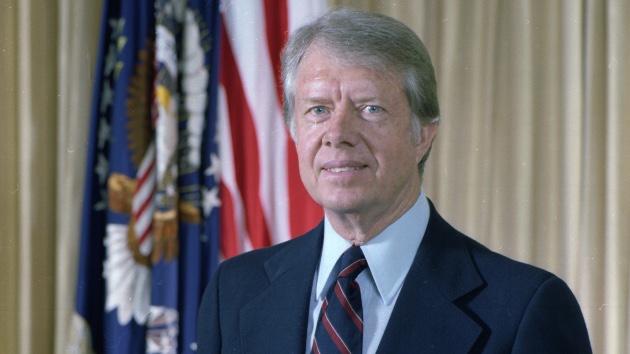Why can fear be so much fun? Doctors break down the science of being scared
Written by ABC AUDIO ALL RIGHTS RESERVED on October 31, 2023

(NEW YORK) — Halloween brings spooky seasonal activities that fear and thrill seekers flock to. While many may think of fear as a largely negative reaction, doctors say it can stimulate the same centers of the brain as happiness and is positively reinforced by social bonding when it’s experienced without a threat of real danger.
Below, two doctors break down the science of being scared and explain why fear can be so much fun.
The body reacts to fear with a primitive fight-flight-or-freeze response
When someone is experiencing fear, hormones and neurotransmitters are released that allow the body to react quickly — called the “fight-flight-or-freeze” response. This is considered an evolutionary adaptation for survival when early humans were evading threats, such as predatorial animals.
“[Fear] kicks off a reaction of stress hormones and neurotransmitters, namely adrenaline and dopamine, that then follows and goes down the body and sort of kicks in that fight, flight, freeze reaction,” Dr. Michele Bedard-Gilligan, Ph.D., a specialist in psychiatry and behavioral sciences at UW Medicine who studies fear, said in a UW Medicine blog post.
“In our bodies, that’s going to feel like shakiness and racing heart and sweaty, and all of those sorts of reactions that we need to react quickly and either escape the danger, or fight back, or freeze, if that’s the best thing that’s going to keep us safe,” Bedard-Gilligan said.
The same part of the brain that reacts to fear also responds to happiness
People who seek out scary experiences for fun aren’t “wired differently.” In fact, the same part of the brain that reacts to fear, also responds to pleasurable experiences associated with joy or happiness. This can tie fear and fun together when it’s known that what’s causing the fear response is not actually dangerous.
“There’s this real interplay between our stress hormones and our feel-good hormones,” Dr. Leah Croll, M.D., a board-certified neurologist and assistant professor at Temple University, told ABC News.
“Once the body or brain has recognized that the immediate stressor is no longer posing a threat, then the adrenaline stops working and essentially, you’re left with this euphoric rush of dopamine and serotonin,” Croll said.
“The kind of scare and surviving that kind of scare leads us to feel good. We feel confident, right? That feels like, ‘Look, we did it,'” Bedard-Gilligan said. “For many of us, that feels fun and exciting to kind of have that type of reaction, particularly when it’s happening in a space that we know is actually not objectively dangerous.”
The fun of frightening experiences may be enhanced by social bonding
“There is a real social aspect to fear,” Croll said.
Socialization is known to positively enhance experiences, and doctors say this can hold true even when that experience is scary, helping people feel closer to one another and bond faster.
“Serotonin, when it’s released as part of our reward circuit with dopamine, will ultimately also trigger the release of oxytocin, which is a chemical that makes you feel closer to other people,” Croll said. “You’re sort of stimulating these warm and fuzzy type of feelings towards one another with the stress response.”
Doctors say this is the same reason why people often laugh when coming out of a haunted house or when they get off of a rollercoaster, and having a scary shared experience can positively reinforce the fun of it.
“I think watching other people’s reactions influences our own reactions, watching other people get scared at the same things that we’re getting scared at, or watching them react bigger or smaller than us, those are often sort of social-building and connection-building and really are sort of, I think, key reinforcing human interactions,” Bedard-Gilligan said.
Still, doctors say that thrill-seeking isn’t going to be enjoyable for everyone, and among those who do enjoy a fright night, there are normal variations in the level of enjoyment people will experience.
Copyright © 2023, ABC Audio. All rights reserved.





